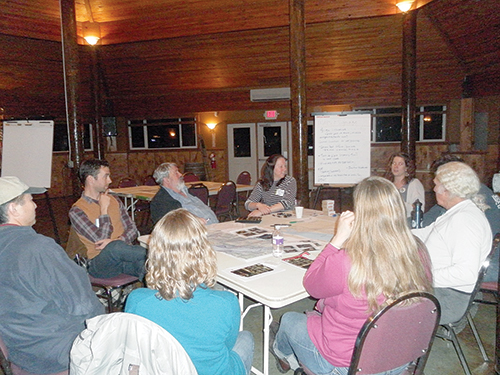A group of Portland State students in the Master of Urban and Regional Planning program, known as Celilo Planning Studio, recently won a national award from the American Planning Association for their work in Cascade Locks, Wash.
Team of PSU graduate students wins national award

A group of Portland State students in the Master of Urban and Regional Planning program, known as Celilo Planning Studio, recently won a national award from the American Planning Association for their work in Cascade Locks, Oregon.
Awards were presented for three different categories, and Celilo received theirs for their outstanding planning and execution.
The team will be recognized for their plan, called “Connect Cascade Locks: A Recreational Trails Plan for Economic Development,” at the APA National Planning Conference in Chicago in April.
“The Connect Cascade Locks project stood out for its detailed research and its excellent public outreach efforts to engage the community in the planning process,” said American Institute of Certified Planners Chair and Student Awards Jury member Mark Stivers. “The project also highlights the connection between recreation facilities and economic development.”
The six team members—Danielle Fuchs, Michael Ahillen, Ellen Dorsey, Chloe Ritter, Sara Morrissey and Sarah Bronstein—started planning the project in February 2012 and finished it in late May of the same year.
Each team chose from several communities that submitted requests to solve a series of problems, and formed a plan to address these issues.
“We chose the Port of Cascade Locks because we were interested in working with a rural town,” said Morrissey, the communications director for Celilo. “[Cascade Locks] also had some unique challenges.”
Some aspects of the plan involve grant applications and a multi-path trail that will connect Cascade
Locks to the Historic Highway.
The students and community hope this will help attract more recreationists to the area and boost economic growth.
“Recreationalists bring in a lot of revenue,” Morrissey said.
In order to develop a plan that kept in mind members of the community as well as those who live outside of the area, Celilo distributed a web-based survey and held case studies and workshops to collect data and get feedback during the planning process.
“The first piece in data that’s important is getting community input,” Morrissey said. “[The] second is getting feedback from people out of the area.”
Morrissey explained that this was a great way to collect their data and helped the group get a closer look at what was happening in Cascade Locks.
“It’s important to make a planning document actionable and tangible to make sure it can be implemented and that they have resources,” Morrissey said. “We wanted to make their lives easier.”
The overwhelming support of the community also helped put the plan in full force.
“That helped garner excitement and motivation,” Morrissey said.
“Construction on the missing trail segments of the Columbia River Gorge State Historic Highway Trail from Troutdale to Cascade Locks will be completed by [the Oregon Department of Transportation] in August of 2013,” said Holly Howell, marketing and development manager for the Port of Cascade Locks, in her project update last November.
“The former Pacific Crest Pub has been reopened by new owners with [an] expanded menu and hours,” Howell said. “I think they will raise the bar for local customer service and community engagement.”
Overall, the team hopes that Connect Cascade Locks will continue to benefit the community.
“Working with the community was very gratifying,” Morrissey said. “They were very grateful…We had really great support.”





